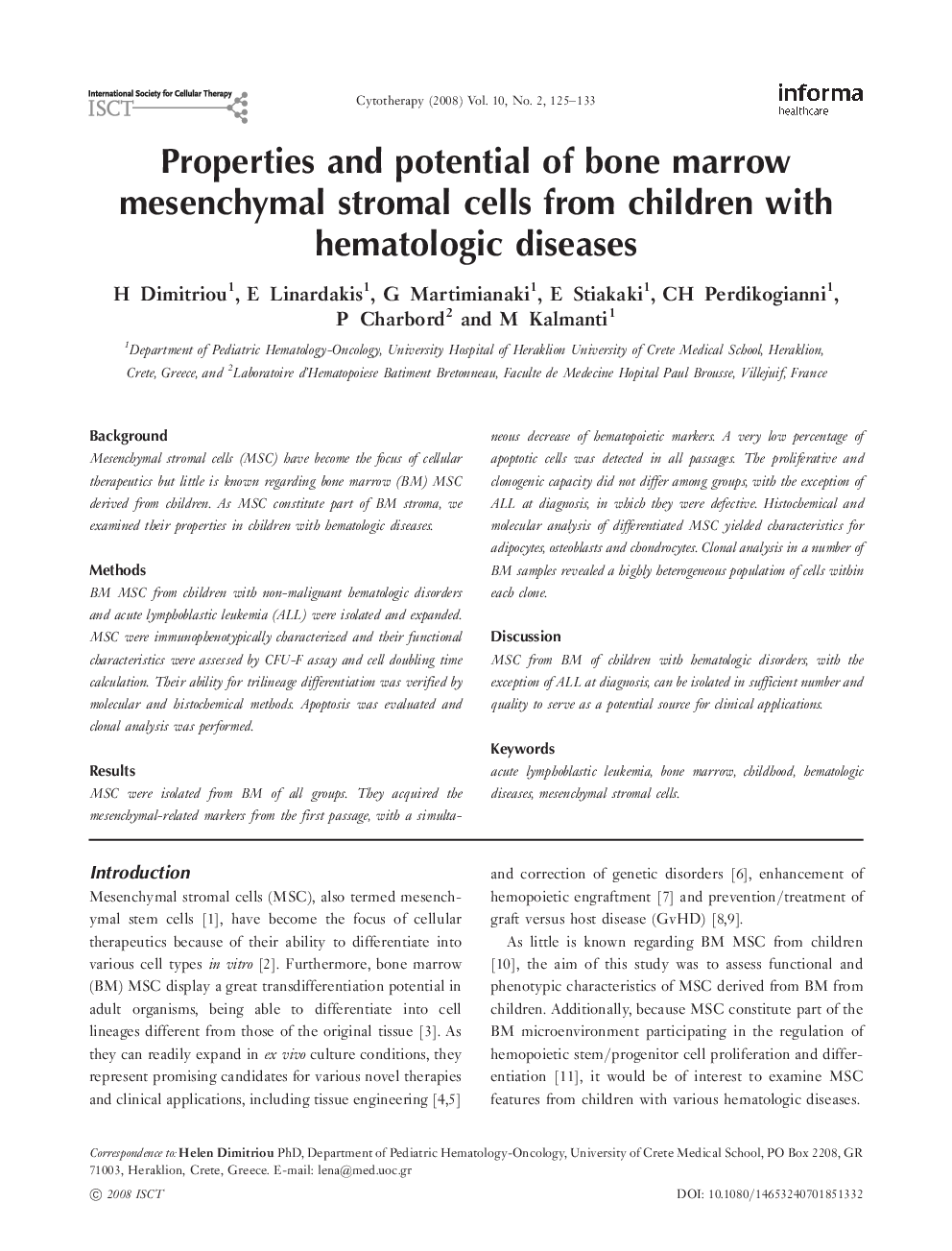| Article ID | Journal | Published Year | Pages | File Type |
|---|---|---|---|---|
| 2172525 | Cytotherapy | 2008 | 9 Pages |
BackgroundMesenchymal stromal cells (MSC) have become the focus of cellular therapeutics but little is known regarding bone marrow (BM) MSC derived from children. As MSC constitute part of BM stroma, we examined their properties in children with hematologic diseases.MethodsBM MSC from children with non-malignant hematologic disorders and acute lymphoblastic leukemia (ALL) were isolated and expanded. MSC were immunophenotypically characterized and their functional characteristics were assessed by CFU-F assay and cell doubling time calculation. Their ability for trilineage differentiation was verified by molecular and histochemical methods. Apoptosis was evaluated and clonal analysis was performed.ResultsMSC were isolated from BM of all groups. They acquired the mesenchymal-related markers from the first passage, with a simultaneous decrease of hematopoietic markers. A very low percentage of apoptotic cells was detected in all passages. The proliferative and clonogenic capacity did not differ among groups, with the exception of ALL at diagnosis, in which they were defective. Histochemical and molecular analysis of differentiated MSC yielded characteristics for adipocytes, osteoblasts and chondrocytes. Clonal analysis in a number of BM samples revealed a highly heterogeneous population of cells within each clone.DiscussionMSC from BM of children with hematologic disorders, with the exception of ALL at diagnosis, can be isolated in sufficient number and quality to serve as a potential source for clinical applications.
